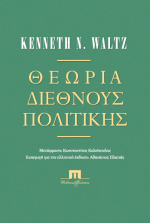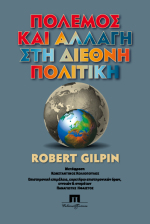 Αμέσως μετά τον Ψυχρό Πόλεμο πολλοί προσδοκούσαν ότι αρχίζει μια ριζικά νέα εποχή σταθερότητας, εξάλειψης του πολέμου, συνεργασίας για το περιβάλλον, αντιμετώπισης της άνισης ανάπτυξης στο πλανητικό επίπεδο και περίπου μεγαλόψυχης και ανιδιοτελούς συνεργασίας μεταξύ των μεγάλων δυνάμεων για αυτά και πολλά άλλα. Τέτοιες θέσεις, βασικά, διατυπώθηκαν σε αναρίθμητα κείμενα. Στη διεθνή βιβλιογραφία βιβλία όπως του Φουκουγιάμα και του Ατταλί έδιναν μια αντίληψη γραμμικής «παγκοσμιοποίησης» όπου υπέβοσκαν υπονοούμενα μιας αδιατάραχτης και παντοτινής επικράτησης των αρχών κα αξιών των ΗΠΑ και εν γένει της Δύσης. Δεν λάμβαναν υπόψη τα τέσσερα πέμπτα περίπου το πλανήτη.
Αμέσως μετά τον Ψυχρό Πόλεμο πολλοί προσδοκούσαν ότι αρχίζει μια ριζικά νέα εποχή σταθερότητας, εξάλειψης του πολέμου, συνεργασίας για το περιβάλλον, αντιμετώπισης της άνισης ανάπτυξης στο πλανητικό επίπεδο και περίπου μεγαλόψυχης και ανιδιοτελούς συνεργασίας μεταξύ των μεγάλων δυνάμεων για αυτά και πολλά άλλα. Τέτοιες θέσεις, βασικά, διατυπώθηκαν σε αναρίθμητα κείμενα. Στη διεθνή βιβλιογραφία βιβλία όπως του Φουκουγιάμα και του Ατταλί έδιναν μια αντίληψη γραμμικής «παγκοσμιοποίησης» όπου υπέβοσκαν υπονοούμενα μιας αδιατάραχτης και παντοτινής επικράτησης των αρχών κα αξιών των ΗΠΑ και εν γένει της Δύσης. Δεν λάμβαναν υπόψη τα τέσσερα πέμπτα περίπου το πλανήτη.
 Η έκθεση που αναρτάται εδώ είναι σημαίνουσα από πολλές πλευρές. Εκτός του ότι οι αναλυτές ανήκουν στο σύστημα παραγωγής κρατικής θεωρίας στις ΗΠΑ και είναι πολύ γνωστή στα πεδία της στρατηγικής θεωρίας, συμβαίνει όταν στην Αμερική συζητούν μεταξύ τους όποιος τα παρακολουθεί να μαθαίνει πολλά. Τόσο για την κατάσταση στον κόσμο όσο και, κυρίως, για το πώς μια μεγάλη δύναμη όπως οι ΗΠΑ βλέπουν αυτά τα προβλήματα. Στην έκθεση που αναρτούμε περιέχονται πολλά στοιχεία για την πλανητική, Ευρασιατική και περιφερειακή κατάσταση σε αναφορά με πολλά ζητήματα. Η ανάλυση αφορά ζωτικά την Ελλάδα. Σημειώνουμε μόνο τρεις βιβλιογραφικές αναφορές των Εκδόσεων Ποιότητα που είναι συναφείς με την έκθεση που αναρτούμε.
Η έκθεση που αναρτάται εδώ είναι σημαίνουσα από πολλές πλευρές. Εκτός του ότι οι αναλυτές ανήκουν στο σύστημα παραγωγής κρατικής θεωρίας στις ΗΠΑ και είναι πολύ γνωστή στα πεδία της στρατηγικής θεωρίας, συμβαίνει όταν στην Αμερική συζητούν μεταξύ τους όποιος τα παρακολουθεί να μαθαίνει πολλά. Τόσο για την κατάσταση στον κόσμο όσο και, κυρίως, για το πώς μια μεγάλη δύναμη όπως οι ΗΠΑ βλέπουν αυτά τα προβλήματα. Στην έκθεση που αναρτούμε περιέχονται πολλά στοιχεία για την πλανητική, Ευρασιατική και περιφερειακή κατάσταση σε αναφορά με πολλά ζητήματα. Η ανάλυση αφορά ζωτικά την Ελλάδα. Σημειώνουμε μόνο τρεις βιβλιογραφικές αναφορές των Εκδόσεων Ποιότητα που είναι συναφείς με την έκθεση που αναρτούμε.
 Το θεωρούμενο πλέον ως κλασικό βιβλίο Πόλεμος και αλλαγή στη διεθνή πολιτική του Robert Gilpin είναι αναμφίβολα το κορυφαίο στην διεθνή βιβλιογραφία για τις προϋποθέσεις «ηγεμονικής σταθερότητας» και των οικονομικών και άλλων κριτηρίων που επηρεάζουν την σταθερότητα, την αστάθεια, τις αξιώσεις διεθνών αλλαγών και τον πόλεμο. Το Θεωρία διεθνούς πολιτικής του Kenneth Waltz (σελίδα facebook) προσδιορίζει τον ρόλο της κατανομής ισχύος στο συστημικό επίπεδο και τον τρόπο που επηρεάζει τις στρατηγικές των κρατών. Το Η τραγωδία της πολιτικής των μεγάλων δυνάμεων του John Mearsheimer (σελίδα facebook), θεωρείται ακόμη και από όσους ασκούν κριτική ως το βιβλίο του 21 αιώνα για τον λόγο ότι προσφέρει την τυπολογία των στρατηγικών του ανταγωνισμού των μεγάλων δυνάμεων και τα αίτια που τον προκαλούν.
Το θεωρούμενο πλέον ως κλασικό βιβλίο Πόλεμος και αλλαγή στη διεθνή πολιτική του Robert Gilpin είναι αναμφίβολα το κορυφαίο στην διεθνή βιβλιογραφία για τις προϋποθέσεις «ηγεμονικής σταθερότητας» και των οικονομικών και άλλων κριτηρίων που επηρεάζουν την σταθερότητα, την αστάθεια, τις αξιώσεις διεθνών αλλαγών και τον πόλεμο. Το Θεωρία διεθνούς πολιτικής του Kenneth Waltz (σελίδα facebook) προσδιορίζει τον ρόλο της κατανομής ισχύος στο συστημικό επίπεδο και τον τρόπο που επηρεάζει τις στρατηγικές των κρατών. Το Η τραγωδία της πολιτικής των μεγάλων δυνάμεων του John Mearsheimer (σελίδα facebook), θεωρείται ακόμη και από όσους ασκούν κριτική ως το βιβλίο του 21 αιώνα για τον λόγο ότι προσφέρει την τυπολογία των στρατηγικών του ανταγωνισμού των μεγάλων δυνάμεων και τα αίτια που τον προκαλούν.
Top Risks 2014
AUTHORS:
IAN BREMMER, PRESIDENT
DAVID GORDON, HEAD OF RESEARCH
01 AMERICA’S TROUBLED ALLIANCES
02 DIVERGING MARKETS
03 THE NEW CHINA
04 IRAN
05 PETROSTATES
06 STRATEGIC DATA
07 AL QAEDA 2.0
08 THE MIDDLE EAST’S EXPANDING UNREST
09 THE CAPRICIOUS KREMLIN
10 TURKEY
* RED HERRINGS
Overview
Since 2008, the world’s biggest risks have been economic. None of the feared crises was as likely to take place as expected (because of underlying political stability!), but from eurozone meltdown to fears of Chinese soft/medium/hard landings to the US debt crisis, analysts have spent the past five years worrying about how to stave off financial implosion. That’s over.
In 2014, big-picture economics are stable if not yet comforting. The EU has clawed its way out of recession. Japan has, improbably, discovered economic leadership. The economic performance of China’s new government is strong. And the US rebound is sufficiently robust for the markets to shrug off New Year’s tapering resolutions. But geopolitics is very much in play. The realities of a G-Zero order, a world of geopolitical creative destruction without global leadership, are evident. There are tensions between China and Japan in the East China Sea, elite-level executions in North Korea, Russia flexing its muscles in neighboring Ukraine and beyond, and everyone fighting with everyone else in the Middle East (some things don’t change). All of which is changing the geopolitical map quite aside from the role of the world’s only superpower.
Above all, we foresee two essential questions about the world’s two largest economies this year. For the US, it’s externally focused: How will policymakers (re)define the role that the US should play in the world. For the “international community,” a term that has well outlived its use, much depends on the answer. For China, the challenge is internal: How will the country change now that real reforms are at hand? Superpower status isn’t on the table, but for the first time in decades, political leadership is altering the way the Chinese system functions. That will affect political risk in China, as well as Beijing’s behavior both domestically and internationally.
The other big focus this year is emerging—or more aptly diverging—markets. A healthy percentage of the major emerging markets that could have elections will hold them this year (China doesn’t, and Russia doesn’t count): Brazil, Colombia, India, Indonesia, South Africa, and Turkey. Not one of those countries enters its electoral cycle with strong, popular leadership. Then add empowered middle classes that demand greater accountability from their governments. The stakes are rising, and some of the world’s key economies are in for a rough ride.
It’s another troubled year for the Middle East and beyond, though the impact of the war in Syria is receding. After years of sanctions vs nuclear buildup, it’s the moment of truth in the Iranian nuclear talks, with either a deal or a collapse in negotiations that will have far-reaching regional implications. None of the hotspots in the extended region—North Africa, the Gulf, the Horn of Africa, Afghanistan/Pakistan—will avoid major conflict. Radicalism (Al Qaeda, in particular) is changing. It poses a less direct threat to the US but ignites more instability across the region. And to add fuel to the fire: In past decades, geopolitical conflict has pushed oil prices higher; this year, lower oil prices will put the squeeze on regional producers and others further afield.
Beyond that, the implications of the fight over cyber-security and the fallout from the broad, deep, and ongoing National Security Agency (NSA) scandal are making strategic data a core global political risk. The last two risks involve Russia and Turkey, and their leaders’ increasingly capricious behavior.
Διαβάστε ολόκληρη την έκθεση, κάντε κλικ εδώ: Top+Risks+2014.


